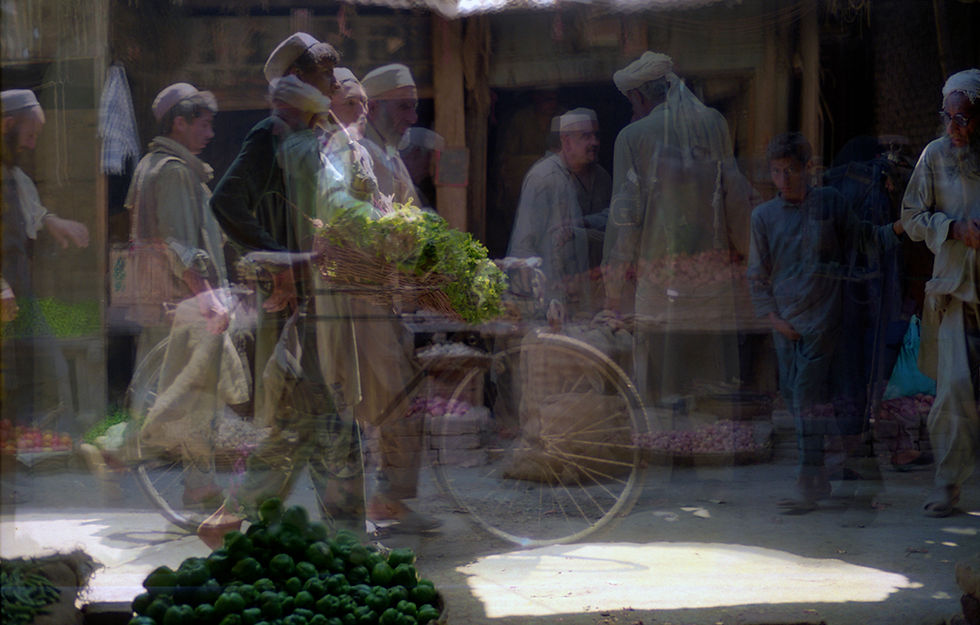Everything necessarily leads to the landscape
Philipp Otto Runge
Centuries ago, landscape was no longer regarded as a mere backdrop. Romantic painters recognised in it allegories of emotional states and gave it a symbolic preponderance, charged with power and mystery. They were able to understand the psychic importance of nature as a projection of our soul. Everything we see is nothing more than an expression of the forces that are bubbling within us.
The 19th century saw the rise of science and explorer-travellers travelled the world with artists illustrating the wonders of an extraordinary planet. Alexander von Humboldt had the good fortune to visit the American continent at a time when the destruction and taming of nature was still in its infancy, and he was able to see lands of such splendour that even in our wildest dreams we could not imagine. His travels on the continent left an indelible mark on him, so that after his return to Germany he continued to dream of his unforgettable journey to the equinoctial regions. In this way, he encouraged and stimulated the work of artists and explorers, infecting them with an enthusiasm that never waned. Thus, in the mid-19th century, he became the godfather of the artist Ferdinand Bellermann, a fellow countryman, painter and naturalist strongly influenced by his travels and ideas.
In 1842 - 180 years ago now - thanks to Humboldt's support, Bellermann had the good fortune to travel to Venezuela and tour a country we can barely glimpse. But his powerful and evocative work is as persuasive as his tutor's texts, and to this day they make us relive the magnificence of the natural landscape as a projection of our exuberant soul.
Bellermann's work has always been highly appreciated in Venezuela, and in my adolescence I had the immense fortune of encountering it in various exhibitions until, in 1991, when I was still finishing my studies in Biology at the Universidad Central de Venezuela, I came across the exhibition Memories of the landscape, at the National Gallery of Arts, in Caracas. There I found myself in front of the work of this art scientist, an epiphany that left an indelible mark on me.
Shortly after graduating, I also became an art scientist, and my exhibition career began. However, the landscape, that force that moves me and seizes my gaze on each of the numerous journeys I have undertaken, had not managed to be more than a backdrop. A scenography in which the image of some subject developed.
A little less than a year ago, all of us subjected to the confinement of a strict quarantine, confined to the intimacy of our home, I had the opportunity to let off steam on a series of forays into a forest near Caracas, and it was then that I was able to recognise the allegorical importance of landscape in my life and, now, in my work. I was able to make a series of images with a great pictorial charge and, thus, this project Sketches was born. A series in which, at last, the landscape is the protagonist, the centre of the drama. Through digital editing, I was not only able to construct a body of dreamlike works related to the forest in which the possession took place. I was also able, by going through my archives - which are my travel diaries - to reconstruct the emotions that the different landscapes have represented in my life, in the same way that Bellermann developed much of his work from sketches and travel notes, long after his return to his homeland.
However, I take the opposite route to arrive at my proposal: I start from clear and definitive images and, through deconstruction, arrive at the sketch, as I feel that it is this that sums up the essence of the landscape. It is a series that tries to blur landscapes to take them to their symbolic or dreamlike core, to turn them into archetypal landscapes.
The body is the place where emotions are embodied. And this material body in turn is located in space, also material, as a continuum. From this derives the fact that emotions are manifested through the body and the space in which it is found or contemplated, that is, the landscape. In the words of Paloma Puente Lozano: for it is this body to body with the landscape that defines the participation of the individual in an adventure without which the world is reduced to a sterile surface deprived of meaning.
Sketches is an offering to the power that Bellermann's works had on my vocation as an art scientist - or artist of science - and a recognition, in times when it has been vetoed, of the power of landscape as an expression of our untamed soul.





























